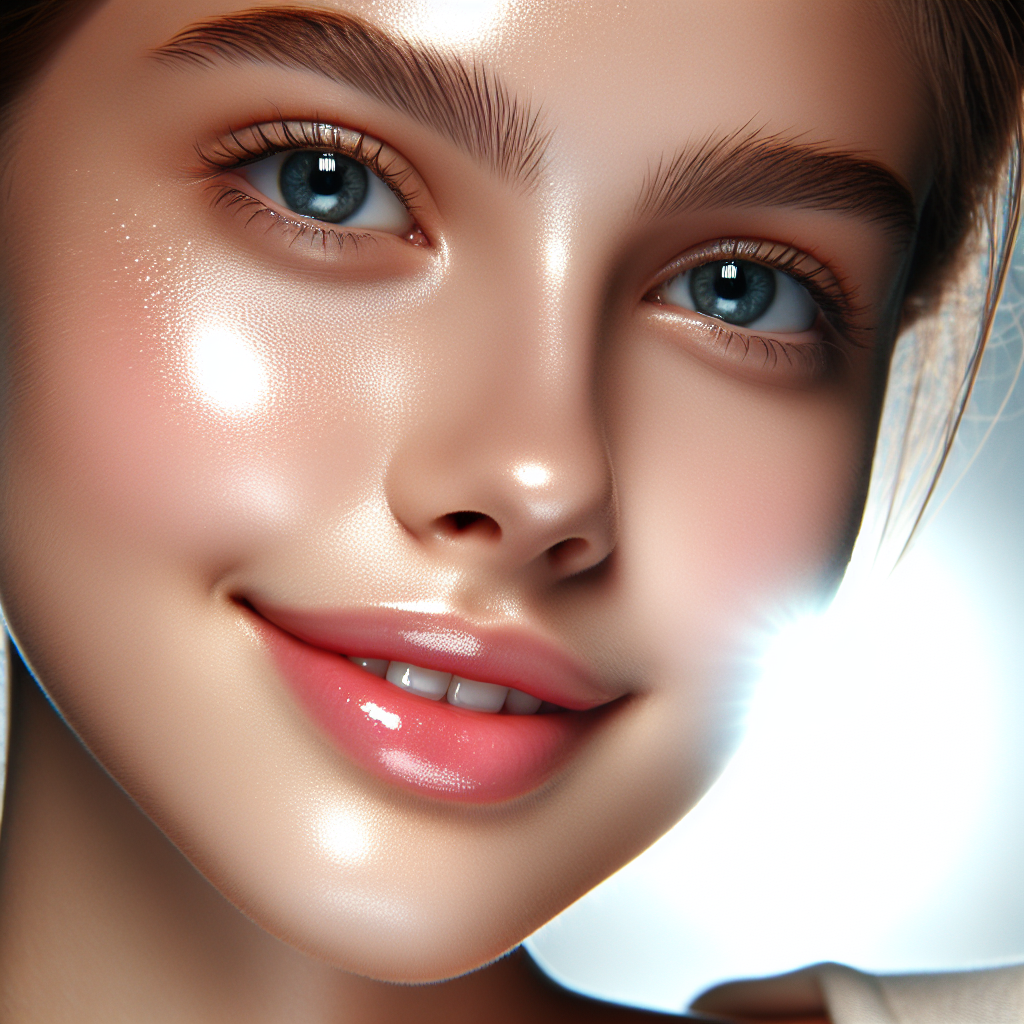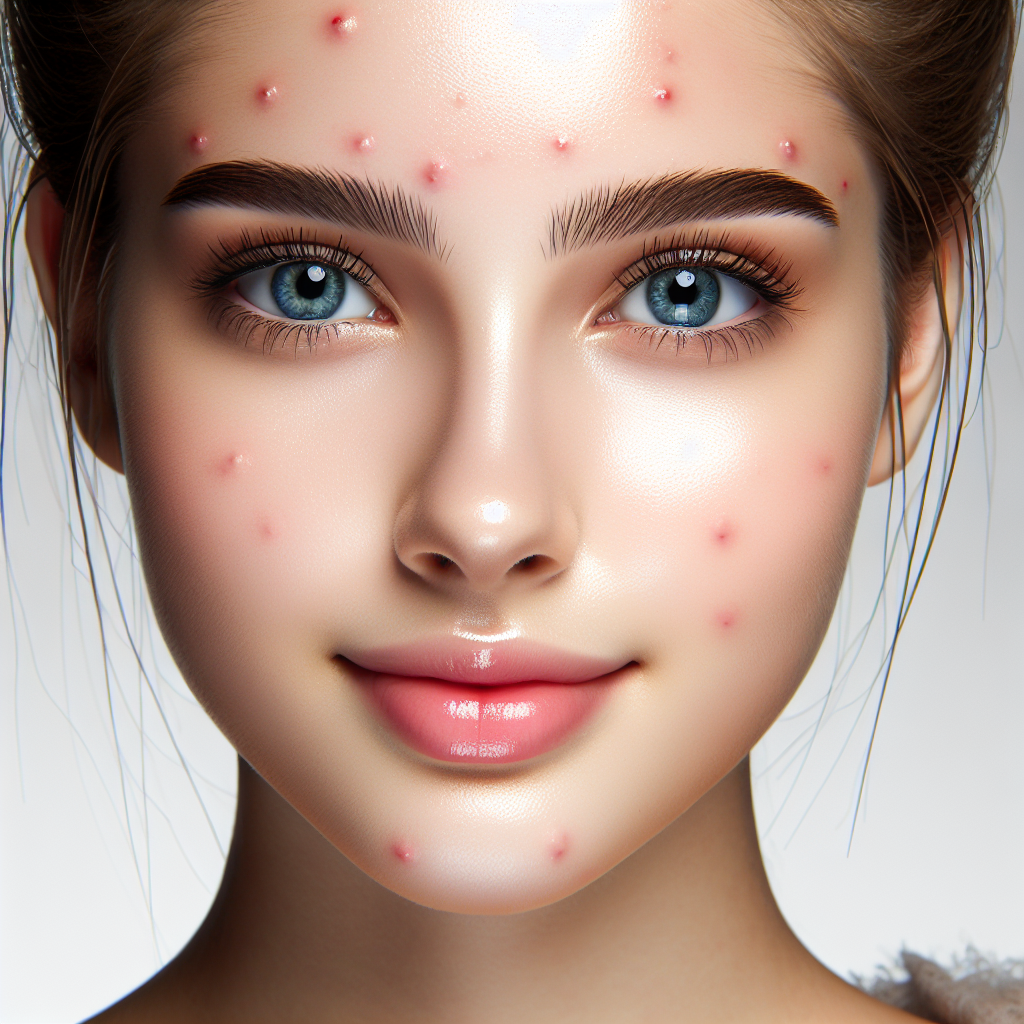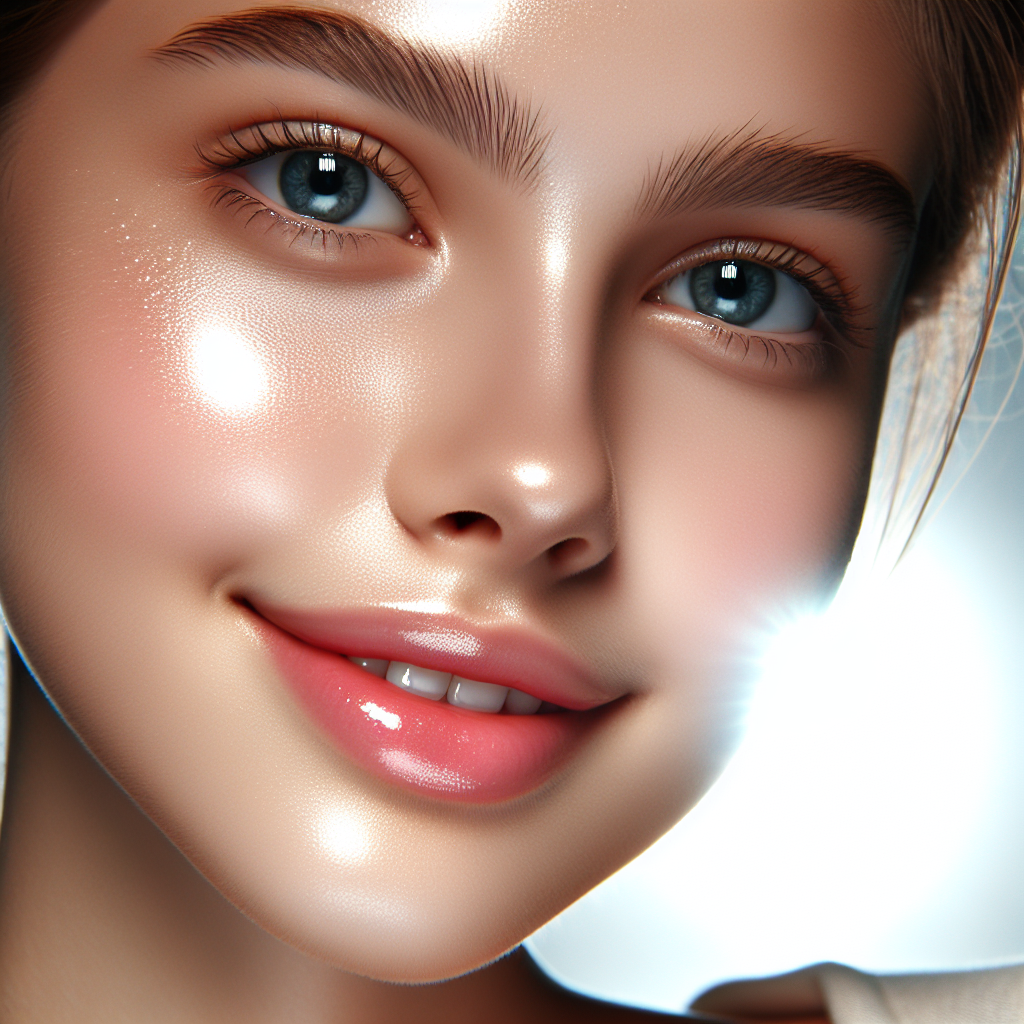Achieving clear and blemish-free skin during the teenage years can be a daunting task. With hormonal changes, stress, and everyday challenges, acne becomes a common hurdle for many adolescents. In “Blemish Be Gone: A Teen’s Guide to Acne-Free Skin,” you will uncover proven strategies and practical tips that will empower you to take control of your skin, effectively combat breakouts, and restore your confidence. This comprehensive guide is designed to equip you with the knowledge and tools necessary to navigate through the world of skincare, ensuring that you can confidently tackle acne and embrace the radiant complexion you deserve.

Understanding Acne
Acne is a common skin condition that affects many individuals, especially teenagers. It is characterized by the presence of pimples, blackheads, and whiteheads on the face, neck, chest, and back. Understanding the underlying causes of acne can help teenagers better manage and prevent breakouts.
Acne is a skin condition that occurs when hair follicles become clogged with oil and dead skin cells. This can lead to the formation of pimples, whiteheads, blackheads, and even cysts. It is most commonly seen on the face, but can also affect other areas of the body.
Teenagers are more prone to developing acne due to hormonal changes that occur during puberty. Increased levels of androgens, a type of hormone, can cause the oil glands to produce excessive sebum. This excess oil can clog the pores and lead to the formation of acne.
Different types of acne
There are different types of acne that teenagers may experience. These include:
- Whiteheads: Small, flesh-colored bumps that are closed and not inflamed.
- Blackheads: Open comedones that are dark in color due to oxidized melanin.
- Papules: Small, red and tender bumps that are inflamed but do not have a head.
- Pustules: Similar to papules, but with a white or yellowish head.
- Nodules: Large, painful, solid bumps deep within the skin.
- Cysts: Painful, pus-filled lumps that are deep and can cause scarring.
Understanding the different types of acne can help determine the appropriate treatment approach.
Causes of Acne
Several factors contribute to the development of acne in teenagers. Understanding these causes can help implement effective preventive measures.
Hormonal changes
As mentioned earlier, hormonal changes during puberty play a significant role in the development of acne. Increased androgen levels stimulate the oil glands to produce more sebum, leading to clogged pores and acne breakouts.
Excess oil and clogged pores
Excessive oil production, known as sebum, can clog the hair follicles and trap dead skin cells. When this happens, bacteria can thrive in the clogged pores, leading to inflammation and the formation of acne.
Bacteria
Propionibacterium acnes, a type of bacteria that naturally resides on the skin, can contribute to acne development. When trapped in clogged pores, this bacteria can multiply and cause inflammation.
Dietary factors
While the direct link between diet and acne is still being studied, some research suggests that certain foods may contribute to breakouts in susceptible individuals. Diets high in refined carbohydrates, such as white bread and sugary snacks, may increase insulin levels and promote skin inflammation.
The Impact of Lifestyle on Acne
Lifestyle factors can significantly influence the severity and frequency of acne breakouts. Implementing healthy habits can help manage acne and promote clear skin.
Effect of diet on skin
While more research is needed to establish a definite connection, some studies suggest that a diet high in processed foods and refined sugars may exacerbate acne. On the other hand, a diet rich in fruits, vegetables, and whole grains can support overall skin health.
Impact of stress
High levels of stress can trigger hormonal changes in the body, leading to an increase in sebum production and acne breakouts. Managing stress through relaxation techniques, exercise, and sufficient sleep can help reduce acne flare-ups.
Consequences of poor sleep
Inadequate sleep can disrupt hormone regulation and increase inflammation in the body, potentially worsening acne symptoms. Establishing a regular sleep schedule and prioritizing quality sleep can aid in acne management.
Physical activity and skin health
Regular exercise promotes healthy blood circulation and oxygenation, which can benefit the skin. However, it is important to maintain proper hygiene by cleansing the skin after sweating to prevent clogged pores.
Basic Skincare Routine for Teens
Maintaining a regular skincare routine is crucial for managing acne and promoting clear skin. Here are some essential steps to incorporate into a teen’s skincare regimen:
Importance of regular cleansing
Cleansing the skin twice a day is essential for removing excess oil, dirt, and impurities that can clog the pores. Use a gentle cleanser formulated for acne-prone skin to avoid stripping the skin of its natural oils.
Role of exfoliation
Exfoliating the skin once or twice a week can help remove dead skin cells, unclog pores, and promote cell turnover. However, it is important to use a gentle exfoliant and avoid scrubbing too harshly, as this can irritate the skin and worsen acne.
Deep-cleansing masks
Using a deep-cleansing mask once a week can help draw out impurities and excess oil from the pores. Look for masks containing ingredients such as activated charcoal or clay, which have absorbent properties.
Moisturizers and their relevance
Contrary to popular belief, moisturizing is essential for all skin types, including acne-prone skin. Look for oil-free, non-comedogenic moisturizers that provide hydration without clogging the pores.

Choosing the Right Skincare Products
With a multitude of skincare products available, it can be overwhelming to determine which ones are most suitable for acne-prone skin. Consider the following factors when selecting skincare products:
Understanding your skin type
Knowing your skin type is crucial for selecting the appropriate products. Acne-prone skin may vary from oily to dry, so choose products that cater to your specific needs.
Ingredients to look for in acne products
When choosing acne products, look for ingredients that are known to be beneficial for acne-prone skin. Some commonly recommended ingredients include benzoyl peroxide, salicylic acid, and tea tree oil.
Identifying potential irritants in products
Avoid skincare products that contain harsh ingredients, artificial fragrances, or excessive amounts of alcohol, as these can irritate the skin and worsen acne symptoms. Opt for gentle, hypoallergenic options whenever possible.
Natural Remedies for Acne
In addition to conventional acne treatments, some natural remedies can help manage acne symptoms. Here are a few natural remedies that may be beneficial:
Using Tea Tree Oil
Tea tree oil is known for its antimicrobial and anti-inflammatory properties, making it an effective natural remedy for acne. Dilute a few drops of tea tree oil with a carrier oil, such as jojoba oil, and apply it to affected areas.
Benefits of green tea for skin
Green tea is rich in antioxidants and has anti-inflammatory properties that can help soothe irritated skin. Applying cooled green tea as a face mask or using skincare products containing green tea extract may help alleviate acne symptoms.
Honey and Cinnamon Mask
Combining honey and cinnamon can create a powerful mask with antibacterial and anti-inflammatory properties. Mix equal parts honey and cinnamon to form a paste, apply it to the face, and leave it on for 10-15 minutes before rinsing.
Aloe vera for skin hydration
Aloe vera gel is known for its soothing and hydrating properties. Applying pure aloe vera gel to the skin can help reduce inflammation and redness associated with acne breakouts.
Professional Treatments for Acne
For severe or persistent acne, professional treatments may be necessary. Dermatologists can offer various treatments tailored to individual needs:
Dermatology visits
Regular visits to a dermatologist can help manage acne and prevent future breakouts. Dermatologists can provide personalized treatment plans based on the severity of the acne and individual factors.
Prescription topical treatments
Dermatologists may prescribe topical creams or gels containing ingredients like retinoids, antibiotics, or azelaic acid to help treat acne. These medications may help unclog pores, reduce inflammation, and kill bacteria.
Oral medications
In some cases, dermatologists may prescribe oral medications, such as antibiotics or hormonal pills, to address the underlying causes of acne. These medications can help regulate hormone levels or reduce inflammation.
Chemical peels and extractions
Chemical peels can help improve acne scarring and reduce the appearance of active acne. Additionally, dermatologists may perform extractions to remove comedones or cysts safely.
Coping with Acne Scars
Acne scars can have a significant impact on an individual’s self-esteem. While it may not be possible to completely eliminate acne scars, there are methods to minimize their appearance.
Types of acne scars
Acne scars can take various forms, including atrophic scars (depressions in the skin), hypertrophic scars (raised scars), and post-inflammatory hyperpigmentation (dark spots). Understanding the type of scar can help determine the most appropriate treatment.
Over-the-counter products for scar reduction
Some over-the-counter products contain ingredients such as retinol, vitamin C, or alpha hydroxy acids that can help reduce the appearance of acne scars. These products may promote skin cell turnover and collagen production.
Professional scar treatments
Dermatologists offer various professional scar treatments, including laser therapy, microneedling, and dermal fillers. These treatments can help minimize the appearance of scars, stimulate collagen production, and improve overall skin texture.
Coping emotionally with acne scars
Acne scars can have a profound impact on an individual’s self-confidence and emotional well-being. Seeking support from loved ones, practicing self-care, and focusing on inner qualities can help cope with the emotional effects of acne scars.
Preventing Future Acne Breakouts
Prevention plays a crucial role in managing acne and reducing the frequency of breakouts. Implementing the following measures can help prevent future acne breakouts:
Maintaining a skincare routine
Consistency is key when it comes to managing acne. It is important to stick to a regular skincare routine, including cleansing, exfoliating, and moisturizing, to keep the skin clean and healthy.
Recognizing and avoiding triggers
Individuals with acne-prone skin should pay attention to potential triggers that worsen their breakouts. These may include certain skincare products, makeup, stress, or diet. Identifying and avoiding these triggers can help prevent future acne flare-ups.
Dietary modifications
While the direct link between diet and acne is still unclear, some individuals may find that certain foods exacerbate their breakouts. Experimenting with dietary modifications, such as reducing processed foods or dairy intake, can help determine if diet plays a role in their acne.
Regular dermatologist checkups
Regular visits to a dermatologist can help monitor the progress of acne treatment and make adjustments as needed. Dermatologists can provide professional guidance and support to help manage acne effectively.
Acne Myths and Misunderstandings
There are numerous myths and misunderstandings surrounding acne. It is important to separate facts from fiction to make informed decisions about acne treatment. Let’s address some common acne misconceptions:
Addressing common acne misconceptions
Some common misconceptions about acne include the belief that acne is caused by poor hygiene, that it only affects teenagers, or that popping pimples is an effective solution. Educating oneself about the true causes and treatments of acne can help dispel these misconceptions.
Facts versus fiction about acne causes and treatments
Contrary to popular belief, acne is not solely caused by poor hygiene. Hormonal changes, excess oil production, and bacteria play significant roles in acne development. Additionally, while there are effective treatments available, there is no one-size-fits-all solution for acne.
Dispelling the myths about diet and acne
The relationship between diet and acne is still a subject of ongoing research. While some individuals may find that certain foods worsen their breakouts, there is no universal dietary formula to prevent or cure acne. It is important to maintain a balanced diet and practice good skincare habits for overall skin health.
In conclusion, understanding the causes, prevention, and treatment of acne is crucial for teenagers to achieve and maintain clear skin. By implementing a proper skincare routine, addressing lifestyle factors, seeking professional help when necessary, and dispelling common myths, teenagers can navigate the challenges of acne with confidence and achieve blemish-free skin.

